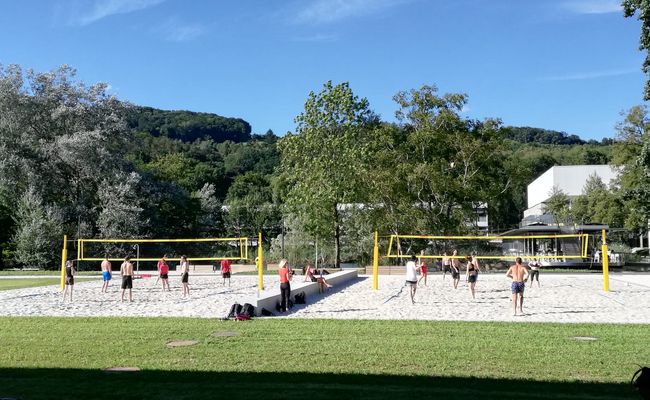On the contrary. As part of the program, you will have numerous opportunities to actively work together with companies, Statistics Austria, or in the field of medicine, technology, and engineering. You will focus on current issues that require collecting statistical data and information. This makes the Master's degree program in Statistics and Data Science very hands-on and focused on contemporary, real-world issues!
Why are election predictions often accurate? How effective are vaccines? As a data scientist, you provide the foundation and the bottom line to be able to make fact-based, informed decisions.
The four-semester Master’s degree program in Statistics and Data Science is offered entirely in English and addresses key areas of statistics and data science. Your studies include focusing on key theoretical approaches and, in cooperation with experts in other fields, you will learn how to apply academic theory to tackle and solve real-world issues.
The 21st century is rapidly becoming an age of information! Your data literacy skills and the ability to critically analyze data and information will be the key to modern society’s future success. As a program graduate with a strong background in statistics, you will be highly sought after for a wide variety of job openings and positions in different fields.
Page Content
Key Facts
Degree
Master of Science (MSc)
Duration
4 semesters
ECTS
120 credits
Language
English (Level B2)
Location
Linz
Program
Full-Time/ Part-Time / (50%)
What Makes the Statistics and Data Science Degree Program Special
- The JKU’s graduate degree program in Statistics and Data Science gives you a unique opportunity to work on current cases using real data, thereby applying theory learned in the classroom to address and solve real-world issues. You can also opt to write your Master’s thesis at a company.
- You can earn additional academic qualifications, such as the "EMOS: European Master's in Official Statistics".
- JKU students consistently rate the program highly; students especially appreciate the more familiar environment, the low student-to-faculty ratio, and being able to easily contact classmates and faculty members.
Program Structure
As part of the Master’s degree program amounting to a total of 120 ECTS credits, students must complete courses in the subject areas of data science, mathematical statistics, recent developments in statistics and data science, statistical methods, soft skills, and free electives.
Detailed information about the program structure and courses are available in the curriculum and in the course catalog.
Master's in Statistics and Data Science: Main Areas of Focus
- The program not only focuses on the study of statistics and data science, but also included honing skills to work effectively with others in different fields and subject areas.
- Statistics: Focus on statistical concepts that include for example an in-depth study of biostatistics and experimental design; you can also earn the European EMOS certificate to boost your professional career and give yourself an international competitive edge.
- Data Science: Apply principles and context to Big Data analyses, for example, or to the way data quantity and quality interact.
- Cross-Disciplinary Focus: Hone your skills to not only be able to work effectively with experts in different fields, but to also create and apply solution-oriented methods.
What you will learn in Statistics and Data Science at the JKU
The program aims to educate students in the field of "data literacy". You will learn everything you need to know about
- Data Acquisition - How do I access and retrieve specific data?
- Data Quantity/Data Quality – What do I need to take into account when analyzing Big Data?
- Data Management - How do I organize data more efficiently?
- Data Analysis - What kind of information does the data provide and what kind of methods can I use?
- Data Processing - Do I use the available software, or program the software myself?
- Communicating Findings - How do I convey analytical findings in laymen's terms?
Did you know that ...?
...the Institute for Applied Statistics (IFAS) at the JKU not only works with a number of local companies that include Hofer, Greiner, voestalpine, Pöttinger, but also with Statistics Austria (paid internships), and with the Faculty of Medicine, the Kepler University Hospital, and the University of Veterinary Medicine?
Your Career Prospects
After successfully completing the Master's degree program in Statistics and Data Science, you can pursue a variety of professional careers. Companies and industries that need to collect, systematically manage, analyze, and present data on a large scale need your expertise! Digitalization is continuing to drive growth in this field forward - our graduates work for leading companies and institutions in the following areas:
- Industry
- Medicine
- Banks
- Official statistics offices, such as Statistics Austria, Statistics Upper Austria
- Conducting market and opinion research
- Trade and commerce
- Academia
On average, graduates of this degree program find a job immediately after graduation.

Register to Enroll
Requirements
In order to be accepted to the Master's degree program in Statistics and Data Science, you must meet the following admission requirements:
- Successful completion of the Bachelor's degree program in Statistics & Data Science at the JKU, or successful completion of a comparable Bachelor's degree program offered at another institution of higher education.
- As this is an English-language degree program, you will need a minimum Matura-level of proficiency in English (Level B2).
Still have questions?
Then contact us!
Department
Admissions Office
Location
Frequently Asked Questions
As this is an English-language degree program, you will need a minimum of Matural level proficiency in English (Level B2).
Still Have Questions?
Do you need help registering or do you have questions about the program? Contact the JKU's Office of Student Information and Academic Advising (SIBS)!




